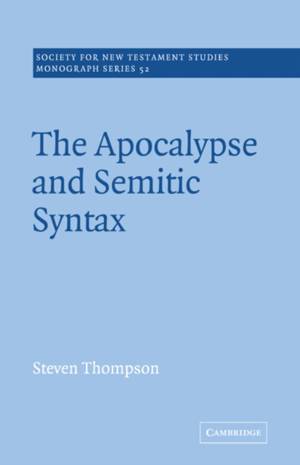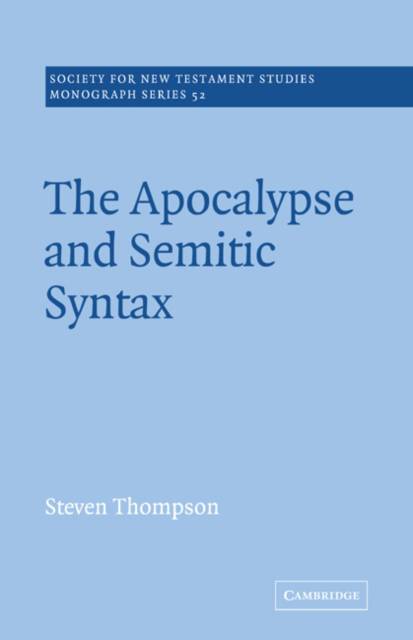
Je cadeautjes zeker op tijd in huis hebben voor de feestdagen? Kom langs in onze winkels en vind het perfecte geschenk!
- Afhalen na 1 uur in een winkel met voorraad
- Gratis thuislevering in België vanaf € 30
- Ruim aanbod met 7 miljoen producten
Je cadeautjes zeker op tijd in huis hebben voor de feestdagen? Kom langs in onze winkels en vind het perfecte geschenk!
- Afhalen na 1 uur in een winkel met voorraad
- Gratis thuislevering in België vanaf € 30
- Ruim aanbod met 7 miljoen producten
Zoeken
Omschrijving
This book offers a consistent explanation of the peculiarity of the language of the Apocalypse (or Book of Revelation), namely that the rules of Greek grammar are broken because of the influence of Hebrew and Aramaic. It advances previous similar hypotheses in three ways. First, it focuses chiefly on the verbal system. Secondly, by methodically citing the ancient Greek translations of the Old Testament to demonstrate Hebrew/Aramaic influence, it serves as a limited survey of the syntax of the Septuagint. Thirdly, it argues that the Apocalypse's grammar was influenced not by later Hebrew/Aramaic dialects in use during the first century AD but by Old Testament Hebrew/Aramaic. This thesis suggests a new approach to the Apocalypse that gives greater attention to the influence of Old Testament Hebrew/Aramaic grammar and a fuller awareness of the writer's indebtedness to the Old Testament.
Specificaties
Betrokkenen
- Auteur(s):
- Uitgeverij:
Inhoud
- Aantal bladzijden:
- 168
- Taal:
- Engels
- Reeks:
- Reeksnummer:
- nr. 52
Eigenschappen
- Productcode (EAN):
- 9780521018784
- Verschijningsdatum:
- 22/08/2005
- Uitvoering:
- Paperback
- Formaat:
- Trade paperback (VS)
- Afmetingen:
- 140 mm x 216 mm
- Gewicht:
- 217 g

Alleen bij Standaard Boekhandel
+ 129 punten op je klantenkaart van Standaard Boekhandel
Beoordelingen
We publiceren alleen reviews die voldoen aan de voorwaarden voor reviews. Bekijk onze voorwaarden voor reviews.









